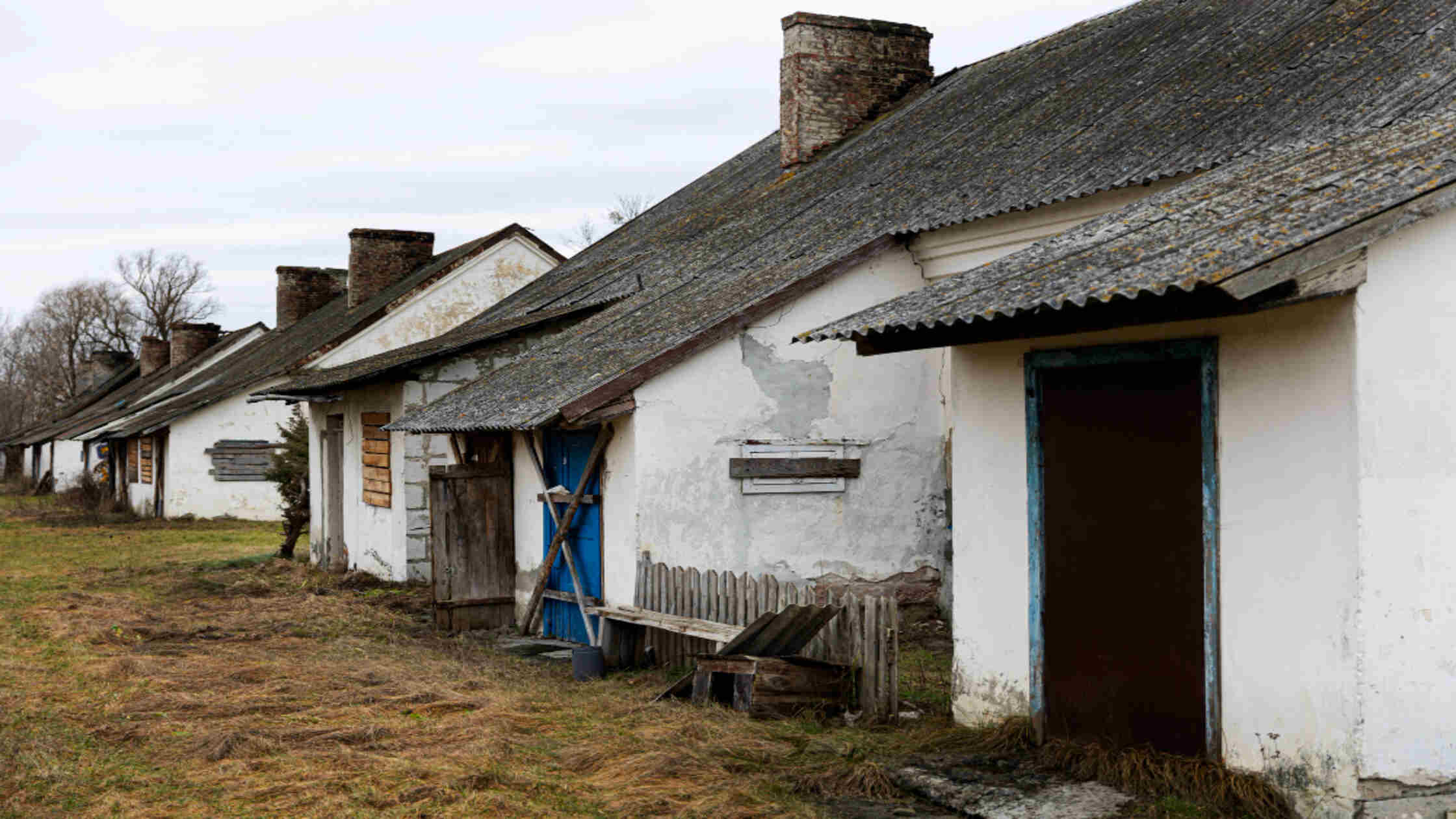For many property owners in Colorado, the thought of squatters can evoke frustration and concern. Colorado squatter rights, often shrouded in legal complexity, can significantly impact your ability to reclaim your property. Knowing your rights and the necessary steps to take can empower you to reclaim your property and maintain your peace of mind!
What are squatters' rights in Colorado?

Squatter rights, or adverse possession laws, provide a legal framework for individuals who occupy a property without the owner’s permission.
Does Colorado have squatters' rights? These Colorado squatter rights are primarily governed by the Colorado Revised Statutes § 38-41-101. This statute outlines the conditions under which a squatter can claim ownership of a property.
Generally, a squatter must occupy the property openly and continuously for a minimum of 18 years while treating it as their own. They can’t hide their presence, and the occupation must be obvious to anyone, including the property owner.
For property owners, it's important to protect their rights and investments, which often involves collecting a security deposit from tenants to safeguard against potential damages or unpaid rent. A well-structured rental agreement that includes a security deposit can serve as a deterrent against squatting, as it establishes clear terms of tenancy and accountability.
Legal Basis: Colorado Revised Statutes § 38-41-101
Under Colorado Revised Statutes § 38-41-101, squatters may obtain legal ownership of a property through adverse possession. The law specifies several requirements, including the need for continuous, open, and exclusive possession of the property for the specified duration. Additionally, the squatter must possess the property without the consent of the owner and in a manner that is not considered hostile.
This legal framework aims to encourage the productive use of land, preventing properties from sitting idle for extended periods. However, property owners have the right to contest such claims in court, emphasizing the importance of understanding the legal nuances surrounding Colorado squatter rights.
Denver Squatter Rights: Are Urban Areas More at Risk?
In bustling urban areas like Denver, the squatting landscape can be particularly tricky. With a vibrant population and a high demand for housing, vacant properties might catch the eye of those in need of shelter. Understanding the specific dynamics of Denver squatter rights can help owners take proactive measures to safeguard their investments. Urban environments often face unique challenges when it comes to property rights, necessitating a clear grasp of the local laws and potential risks involved.
Squatting vs. Trespassing in Colorado: Key Differences
It’s easy to confuse squatting and trespassing.
- Trespassing occurs when someone enters or stays on a property without permission, regardless of how long they’ve been there.
- On the other hand, squatting means occupying a property for an extended period, which might lead to a legal claim for ownership.
Think of it this way: trespassing is like a fleeting guest who overstays their welcome while squatting is more akin to someone moving in and making themselves at home. Recognizing these differences helps you determine the right course of action to take against unwelcome guests.
Recent Legislative Changes: Overview of House Bill 24-1144 (2024)

In 2024, Colorado made waves with the introduction of House Bill 24-1144, shaking up the landscape of squatters rights in Colorado 2024 and evictions. This bill aims to streamline the eviction process for property owners while ensuring that the rights of all parties are respected.
Key updates include a reduction in the notice period required for evictions, making it easier for owners to reclaim their properties when necessary. Plus, the bill ramps up penalties for those who try to exploit squatting laws for personal gain. These changes highlight the ongoing challenges that property owners face, especially in busy urban centers.
Adverse Possession in Colorado: How Do Squatters Claim Property?
Adverse possession might seem like a backdoor way to claim ownership of someone else's property, but there’s a lot more to it than just moving in and hoping for the best. It’s a legal process that requires squatters to meet specific criteria to gain Colorado squatter rights to a property.
What Is Adverse Possession?
At its core, adverse possession allows individuals to gain legal ownership of a property after occupying it for a certain period (18 years in Colorado). The underlying principle is straightforward: if someone uses a property as if it were their own, and the actual owner doesn’t intervene, the law may eventually recognize that person’s claim. This is a fascinating aspect of property law that balances land use with ownership rights.
Legal Requirements for a Successful Claim
For a squatter to successfully claim ownership through adverse possession in Colorado, they must meet specific legal requirements. These include:
- The squatter must occupy the property in a way that is visible and obvious, not hiding their presence.
- They must live on the property continuously for at least 18 years without interruption.
- The squatter should be the only person using the property, not sharing it with the true owner or the public.
Meeting these requirements can be challenging, and property owners have the right to challenge any adverse possession claims in court. To further protect their property rights, landlords should also be aware of Colorado’s rental occupancy laws to ensure compliance with state regulations and prevent unauthorized use.
Is It Illegal to Move into an Abandoned House in Colorado?

Many individuals wonder if they can claim an abandoned house simply by moving in, but the answer isn’t straightforward.
What Counts as “Abandoned” Under Colorado Law?
In Colorado, a property is typically considered abandoned when the owner has not occupied it for a significant period, and there’s no intention of returning. This could mean an empty home with overgrown lawns and no utilities running. However, proving a property is abandoned can be tricky. The actual owner may still have plans for it or could return at any time, complicating the situation for anyone thinking about moving in.
Can You Claim Ownership of an Abandoned Home?
Claiming ownership of an abandoned home isn’t as simple as squatting in it. While some may believe that moving into an abandoned property could lead to ownership, the legal pathways are fraught with challenges.
To claim ownership, one would likely need to go through the adverse possession process, which requires meeting strict legal criteria. Simply occupying the home without the owner's permission doesn’t guarantee ownership and potential legal battles can arise if the original owner asserts their rights.
Legal Risks of Moving into an Unoccupied Property
Choosing to move into an unoccupied property without permission carries significant legal risks. From potential trespassing charges to civil lawsuits, the consequences can be severe. Property owners have the right to defend their interests, and that could mean a costly and drawn-out legal battle for squatters. Moreover, individuals may find themselves facing fines or even eviction if the original owner decides to reclaim their property.
Homesteading Laws in Colorado: Are They Still Applicable?
Homesteading laws once played a vital role in shaping the landscape of land ownership in Colorado, allowing settlers to claim unoccupied land as their own. While the traditional practice may not be as prominent today, the principles underlying these laws still resonate in contemporary discussions about property rights.
In today’s real estate market, the spirit of homesteading continues to influence how we approach issues like squatting and adverse possession. As we delve into the intricate world of land rights, it’s important to consider how these laws impact modern property ownership and the rights of individuals who occupy land without formal permission.
How to Evict a Squatter in Colorado (Step-by-Step Guide for Property Owners)
Encountering a squatter on your property can be a challenging situation, but with a structured approach, you can navigate the eviction process effectively.
- Document Everything: Begin by gathering evidence of the squatter’s presence. Take photographs and record dates to establish a clear timeline.
- Serve an Eviction Notice: Colorado law requires property owners to serve a formal eviction notice to the squatter. This notice should clearly outline the reason for eviction and provide a specific time frame, typically three days for trespassing situations, for the squatter to vacate the premises.
- File for Eviction in Court: If the squatter does not leave after the notice period, the next step is to file an eviction lawsuit in your local court.
- Attend the Court Hearing: Prepare to present your case in court, bringing all relevant documentation, including the eviction notice, photographs, and any communication with the squatter. Your organized presentation will support your claim.
- Obtain a Judgment: If the court rules in your favor, you will receive a judgment allowing you to proceed with the eviction.
- Enforce the Eviction: Finally, coordinate with local law enforcement to ensure the squatter is removed from your property in case they refuse to leave voluntarily.
Hotel Tenant Rights in Colorado: Can Long-Term Guests Become Squatters?
Nowadays, where hospitality and long-term rentals are increasingly intertwined, the question of tenant rights for hotel guests becomes critical. While hotels are designed for short stays, what happens when a guest extends their visit?
In Colorado, staying in a hotel does not automatically grant guests tenant rights. However, as a guest’s stay lengthens, the potential for acquiring rights typically associated with residential tenants increases. This shift can lead to complicated situations for hotel management, particularly if they wish to remove a guest who has overstayed their welcome.
How to Protect Your Property from Squatters in Colorado
Preventing squatting is a proactive endeavor that every property owner should undertake.
- Regularly visiting your property, especially if it’s vacant, can deter potential squatters and allow you to address issues before they escalate.
- Ensure all windows and doors are securely locked and consider reinforcing them.
- There are rules for posting no trespassing signs in Colorado, therefore, make sure your no trespassing signs are visible and comply with local regulations to ensure they are legally recognized.
- Active maintenance responsibility, keeping the property in good condition signals that it is actively managed and not abandoned.
- Installing security systems or surveillance cameras can further protect your property and provide peace of mind.
Final Thoughts
In conclusion, knowledge is your best ally when it comes to dealing with Colorado squatter rights and tenant issues in Colorado. By staying informed and utilizing the right resources, you can effectively protect your property. For further assistance and tools to streamline your rental management, consider visiting LeaseRunner!
FAQs
Q1: Can You Shoot a Squatter in Colorado?
Self-defense laws vary by state, and while you may feel threatened by a squatter, using lethal force is not typically justified in this scenario. In Colorado, property owners should follow legal eviction processes rather than resort to violence. Always prioritize safety and legal procedures in these situations.
Q2: When Does a Guest Become a Tenant in Colorado?
In Colorado, a guest typically becomes a tenant when they receive certain Colorado squatter rights due to their extended stay. This can happen if they have lived in the property for an extended period, have made the space their own, and have not been asked to leave.



